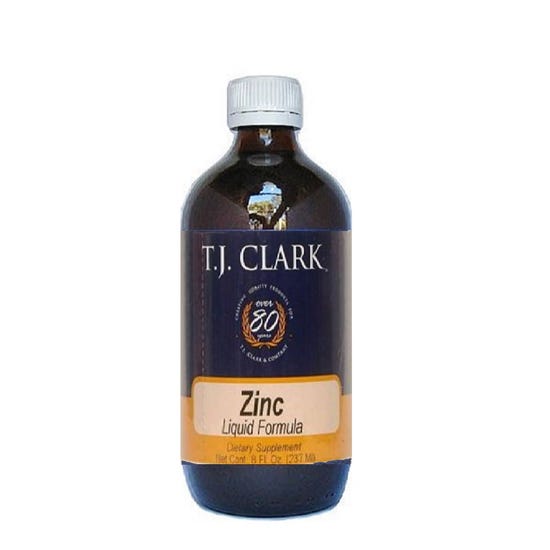Zinc Liquid


Delivery information
- New Zealand delivery address: All New Zealand orders are fully tracked and incur a flat fee of NZ$5.00, including rural delivery and PO Box drop offs. Freight is free for all orders NZ$49.00 and above within New Zealand*
- New Zealand Click n Collect: Free pick up from any of the Health2000 Stores up and down New Zealand
*Rural Delivery Orders cannot be tracked once with the Rural Delivery Driver. For international orders outside of New Zealand and Australia, or Australian orders under NZ$100.00, shipping fees will vary based on the number of items in your order.
For more information please visit our Delivery & Returns page.
T J Clark’s catalysed zinc is the most advanced zinc supplement, providing zinc sulfate in a colloidal form with the addition of a mineral catalyst.
Liquid zinc sulfate was first developed by Dr Bryce Smith for the treatment of anorexia, a condition whereby the ‘zinc blockade’ exists causing a defect in the mucosal absorption mechanisms dependent on zinc. T J Clark’s catalyzed zinc is recognised as the most reliable form of zinc to replenish zinc levels, regardless of an individual’s mucosal absorption ability. T J Clark’s catalyzed zinc is flavoured for optimal patient compliance and is one of the only liquid zinc supplement available through health stores.
Each 5ml contains,
Elemental Colloidal Zinc Sulfate 15mg
Phytogenic Mineral Catalyst 100mcg
Boron
Calcium
Chrromium
Copper
Cobalt
Iodine
Iron
Lithium
Magnesium
Manganese
Molybdenum
Polonium
Potassium
Selenium
Silicon
Strontium
Vanadium
Zinc
Inactive Ingredients
Purified water
Cherry Flavouring
Potassium Sorbate (0.1%)
Doses of zinc up to 40 milligrams daily are generally well tolerated. Higher doses may cause adverse reactions. The most common adverse reactions are gastrointestinal and include nausea, vomiting and gastrointestinal discomfort. Other adverse reactions include a metallic taste, headache and drowsiness. There are some reports of decreased HDL-cholesterol in those taking high doses of zinc. Chronic intake of high doses of zinc can lead to copper deficiency and hypochromic, macrocytic anaemia secondary to zinc-induced copper deficiency.
High doses of zinc may be immunosuppressive.
Zinc should be taken apart from high fibre foods for maximum absorption. Zinc does not appear to interact negatively with medication.

